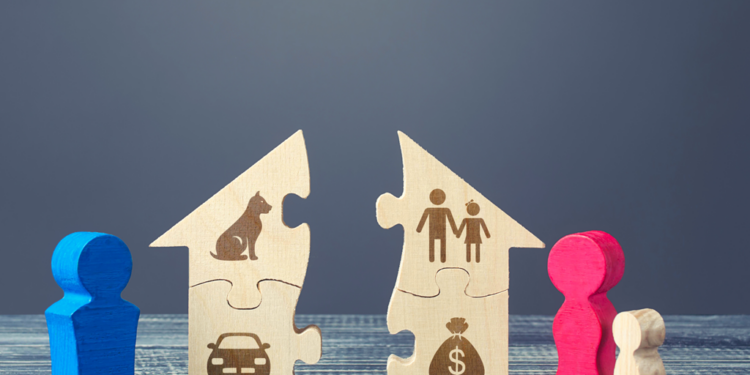What Is Property Division in Divorce, and Why Does It Lead to Disputes?
Dividing property during a divorce often brings intense disputes due to the emotional and financial significance of assets. The family home, in particular, becomes a focal point of contention. This property, more than any other, often represents security, stability, and personal identity for both parties.
Deciding the fate of the marital home is complex due to several factors. Beyond its emotional significance, the house carries financial implications, legal considerations, and the potential to affect long-term personal goals. Understanding these dynamics is critical when making this pivotal decision.
Why Is the Family Home Often the Most Contested Asset?
The family home holds a unique place in divorce disputes because of its deep emotional and practical ties. For many, the home symbolizes years of memories, investments, and stability. Children may associate it with familiarity and comfort, while adults may view it as a cornerstone of their identity.
This emotional weight often makes it difficult for couples to approach the issue with objectivity. Financial concerns, such as mortgage obligations and maintenance costs, further complicate the decision.
What Are the Common Reasons for Wanting to Keep the Family Home?
Why Does the Family Home Hold Such Emotional Significance?
The emotional ties to the family home are powerful. For some, it represents the life they built, milestones achieved, and memories shared. The sense of ownership reinforces personal identity, making it hard to part with the property.
Beyond this, the home symbolizes personal and family stability. Losing it can feel like losing a sense of self or connection to one’s past.
How Does Fear Influence the Decision?
Fear plays a significant role in the desire to keep the home. Starting over in a new place often feels daunting, especially during a tumultuous period like divorce. Adapting to a new environment, finding alternative housing, and managing a fresh start can amplify feelings of uncertainty and stress.
What Role Does the Desire for Consistency Play?
For parents, consistency is a key motivator. Keeping children in a familiar setting minimizes disruptions to their routines, such as schooling and social circles. Maintaining this stability can provide a sense of normalcy for both the parent and the children during a challenging transition.
How Do Personal Grievances Impact This Choice?
In some cases, the desire to keep the home stems from personal grievances. Securing the house may feel like a symbolic victory or a way to address perceived injustices during the marriage. For others, it’s a matter of pride or a refusal to let go of what they consider their rightful possession.
What Practical Considerations Should You Evaluate Before Keeping the Home?
Can You Afford to Keep the House?
Post-divorce finances often look vastly different. Before deciding to keep the home, it’s essential to evaluate your financial stability. Child support or spousal support might offset some costs, but they may not be enough to sustain homeownership.
Creating a detailed post-divorce budget is critical. This budget should account for mortgage payments, insurance, taxes, and utilities to determine whether retaining the home is feasible.
How Will You Handle Maintenance and Upkeep?
Homeownership comes with physical and financial demands. From routine repairs to lawn care and property taxes, the responsibilities of maintaining a home can be overwhelming. Assess whether you have the resources—both time and money—to manage these tasks effectively.
What Are the Legal Implications of Keeping the Home?
Property division laws vary by jurisdiction, and the court may have a say in the fate of the home. In some cases, the court might order the sale of the house to ensure a fair division of assets. If you decide to keep the home, clear legal agreements regarding ownership and financial responsibility are crucial to avoid future disputes.
What Psychological and Emotional Factors Should You Consider?
What Memories Does the Home Represent?
The home often carries both positive and negative associations. While happy memories may make the home desirable, painful ones could make it harder to move forward. Reflecting on these emotions can help determine whether staying in the home aligns with your long-term well-being.
Why Might a Fresh Start Be Beneficial?
A fresh start in a new location can foster personal growth and healing. Relocating might offer opportunities to rebuild your life without the weight of past experiences tied to the marital home.
Does the Home Align With Your Long-Term Goals?
Keeping the home should align with your broader life goals. If it hinders your financial or emotional recovery, letting go might be the better choice. A “clean slate” often provides the clarity and space needed to focus on future aspirations.
What Questions Should You Ask Yourself Before Making the Decision?
Before deciding whether to keep or leave the family home, ask yourself:
- What does the house represent to you—security, stability, or emotional ties?
- How will keeping or leaving the home affect your financial and emotional health?
- Where do you want to focus your resources—on maintaining the house or creating a new beginning?
These questions encourage a deeper understanding of your motivations and priorities, helping you make a decision that supports your long-term goals.
Why Is the Decision to Keep or Leave the Marital Home Highly Personal?
Deciding the fate of the marital home is deeply personal, influenced by a mix of emotional, financial, and practical factors. Careful consideration of these elements ensures you make an informed choice that aligns with your post-divorce aspirations.
Whether you choose to keep the house or move on, taking proactive steps—such as consulting financial and legal professionals—can provide clarity and confidence. Your decision should ultimately reflect what’s best for your future stability and happiness.











